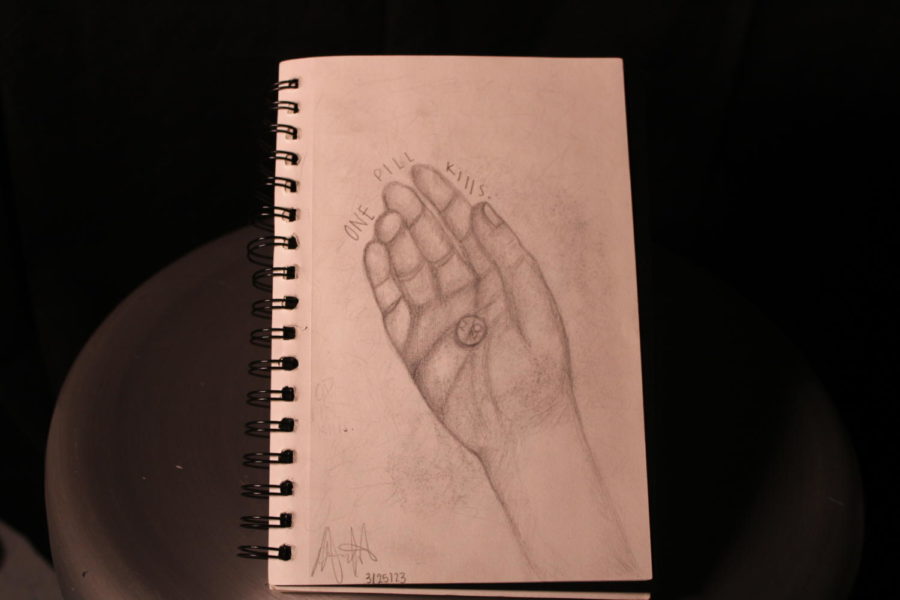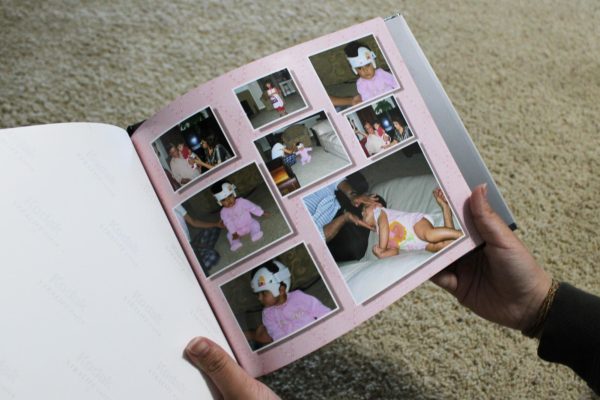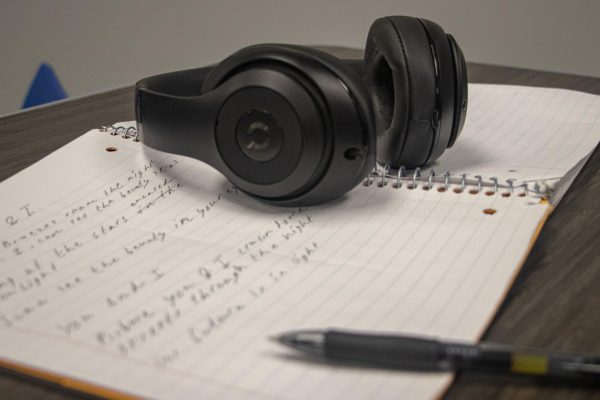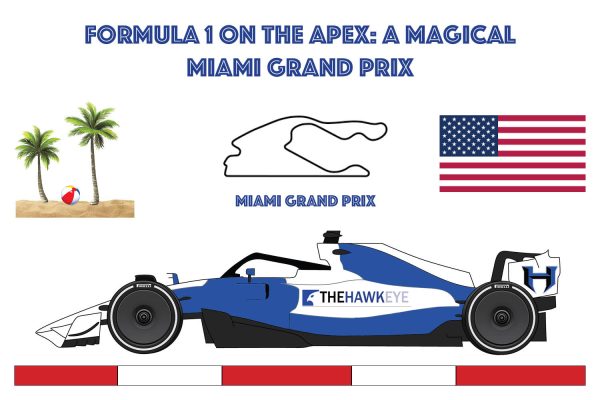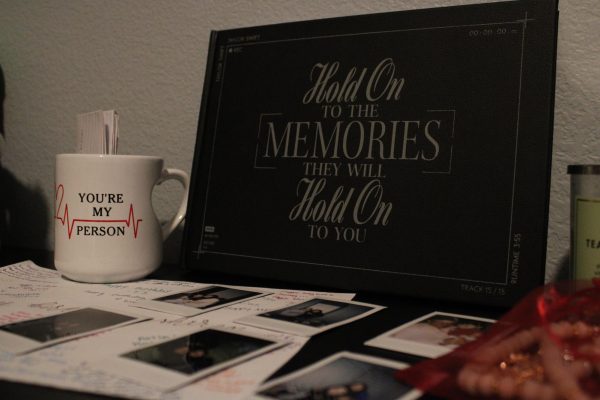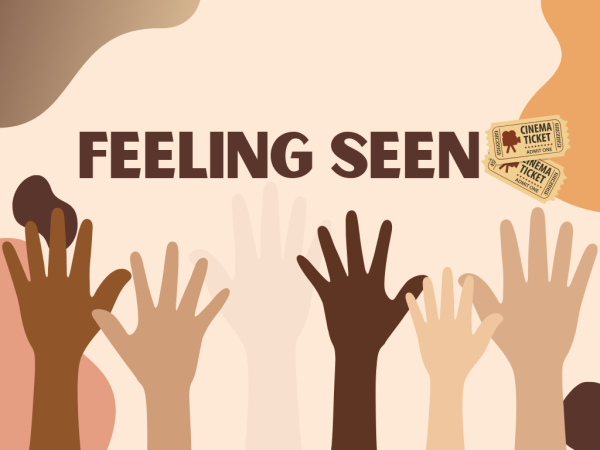Opinion: One pill kills
Addiction isn’t a choice
For the majority of my life, I thought addiction was simply an effect of bad decisions made by people who were struggling. I always thought it was simply a choice that people made, that someone I really loved made. Though, when it impacted someone I wholeheartedly cared for, I opened my eyes to the true meaning behind the word and concept.
Addiction – also referred to as a substance use disorder – is a chronic disease. It’s caused by a combination of genetic, social and environmental factors. Our brains are designed in such a way where they seek out rewarding experiences due to dopamine, a chemical released in the brain to make people feel good, but is also released as a result of drug and alcohol use.
Learning the true meaning of such an important yet controversial concept helped me look at someone I loved in a different way. Instead of being confused as to why they’d make a choice that would impact not just them, but our family, too, I realized it wasn’t a choice. They were struggling, and even though it was used as a coping mechanism to help with other mental conditions at first, it slowly altered the brain and became the exact condition it sought to fight.
When drug and alcohol addiction advances, the brain’s chemical makeup is altered, causing a part of the brain to shrink. This is why those who are addicted don’t have a choice but to continue – those changes in their brain limit their ability to make certain decisions regarding the matter. It’s not that a person doesn’t want to stop, but more so that they biologically can’t.
Addiction is similar to other diseases, such as heart disease or lung disease, where they disrupt a healthily functioning organ and have harmful effects while also being preventable and treatable. Even though they’re all similar, addiction isn’t treated like other diseases. When someone has cancer, they aren’t punished for having a disease; instead they’re pitied and offered treatment plans, but when someone’s suffering from addiction they’re judged for having a character flaw and punished for choosing to cope with different substances.
Addiction doesn’t stem from a character flaw, it’s a real disease with an extremely high death toll. Part of this problem has to do with how greatly our healthcare system lacks the resources to treat and prevent overdoses. Four out of five Americans who seek treatment for illicit drug use don’t receive it. In 2021, more than 106,000 people died of a drug-involved overdose in the U.S. alone.
Addiction doesn’t only affect those who are dealing with it, but it affects the people who are around the person struggling and those who love and care for them. When I found out a family member of mine had been struggling with something like this, it hurt in a way that is indescribable. Finding out that someone I love felt that the only way to cope was with substances had to be one of the hardest things to hear. Supporting a loved one and getting them the proper help is what helps them push through.
Although addiction is a deadly disease, there are treatment options. While people find it hard to believe that something like addiction requires the medical attention it does, it’s similar to cancer in that aspect. I wouldn’t attempt to cure my cancer on my own; I’d go to a healthcare professional who’d offer a variety of different treatment plans unique to my case, and there’d be a countless number of check-ins after. Most people understand the treatment process for cancer, and even though the one for addiction is similar in concept, people still have a hard time accepting it because of the stigma that addiction is a choice.
This stigma placed on addiction isn’t just followed by people in society, but also by healthcare professionals, and often reduces the quality of care that these patients get. This affects the addiction statistics and overdose rates as treatments can work and help give people dealing with substance use disorders a chance at recovery.
My loved one had anxiety, as well as heart disease, yet no one ever told him that those were his fault or that he’s a bad person and lacks morals because of it. He was constantly offered care for those diseases whether it was through healthcare or loved ones. However, addiction is what brought those opposing thoughts into the heads of many people in society.
Addiction is treated like it’s something those dealing with it want, but in reality, it’s the opposite. Addiction isn’t a choice; no one would want to feel so powerless and trapped – it’s a disease. A disease that can happen to anyone, regardless of their character. Addiction may be many different things and even though some of those are unknown, the one thing we should all know, as a society, is that it’s a disease, not a choice.
Mental Health I Care Crisis Line:
Call or Text: 1-800-866-2465
Suicide & Crisis Lifeline:
Call or Text 988
SAMHSA hotline:
Call or Text 1-800-662-4357
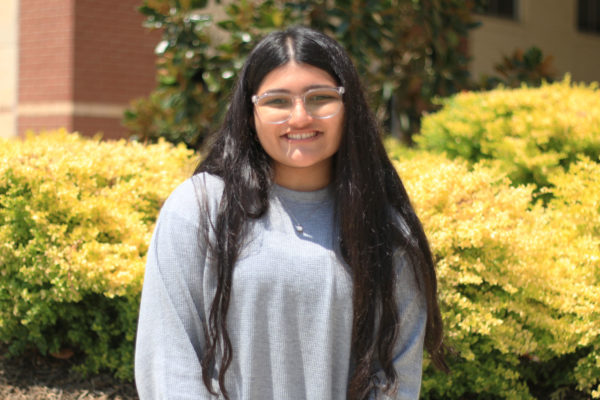
Junior Shiren Noorani is the social media manager and this is her second year on staff. In her free time, she loves to travel with her family and play...



